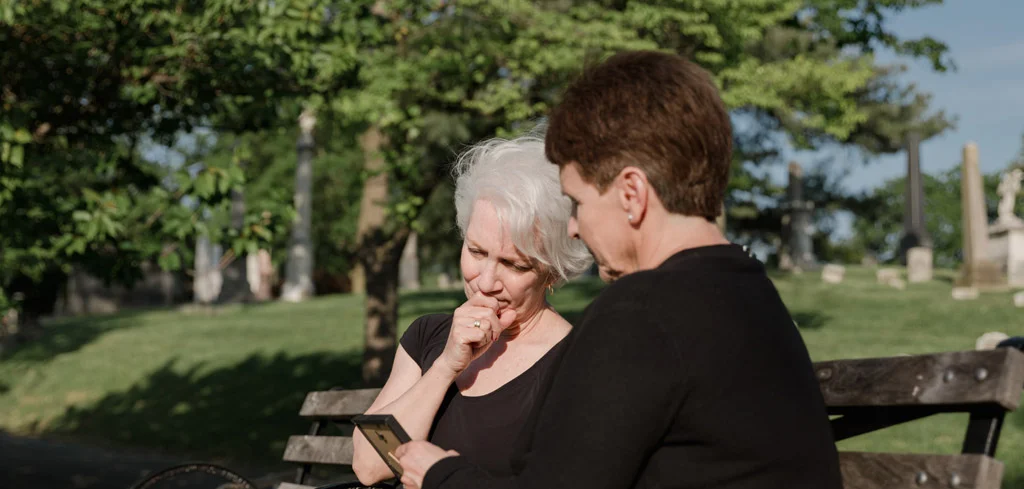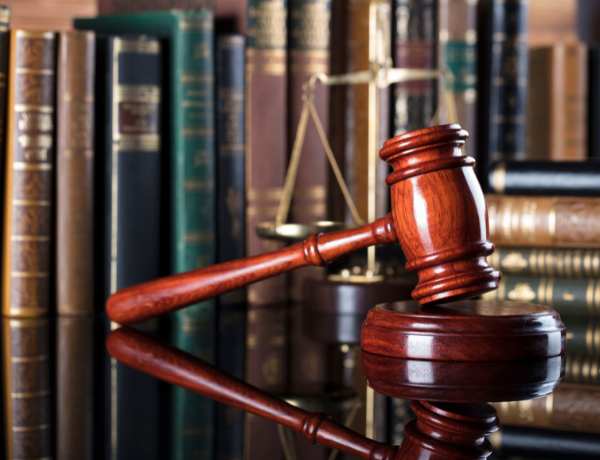Free Consultation - Call Now:
Free Consultation - Call Now:

Losing a loved one is always a tragic experience. When this loss is caused by the negligence or reckless actions of another party, the pain can be exponentially worse. In such instances, it is important to ensure that justice is served, and the responsible party is held accountable. One of the ways you can do this is by hiring a wrongful death lawyer. In this article, we'll delve into the importance of hiring a wrongful death lawyer and why you should consider Heintz Law Firm in Florida for legal representation.
A wrongful death occurs when a person is killed due to the negligence or misconduct of another person, company, or entity. This can occur in various situations such as in a car accident caused by a drunk driver, a defective product that leads to death, medical malpractice, or in a work-related accident.

Hiring a wrongful death attorney is crucial for several reasons:
Wrongful death claims are complex and involve several legal procedures that require specialized knowledge. Wrongful death attorneys have the training and experience needed to handle these complexities. They understand the legal language, processes, and regulations related to wrongful death cases.
The period after losing a loved one can be emotionally charged. It can be challenging to make clear and objective decisions under such circumstances. Hiring a wrongful death attorney can provide objective and professional advice to help you make the right decisions.
To prove negligence in a wrongful death case, an in-depth investigation is crucial. Wrongful death attorneys have resources and connections that can aid in conducting thorough investigations.
A wrongful death attorney can help determine the fair amount of compensation you deserve. They can effectively negotiate with insurance companies and responsible parties to ensure you get maximum compensation.
The eligibility to file a wrongful death lawsuit varies by jurisdiction, but in general, the claim is typically filed by a representative of the deceased's estate, often on behalf of surviving family members. Here are common parties who are usually eligible to file:
The surviving spouse of the deceased person is typically eligible to file a wrongful death lawsuit.
Minor children, and sometimes adult children, can file a wrongful death claim to compensate for the loss of a parent.
The parents of minor children who have died can typically file a wrongful death lawsuit. In some jurisdictions, parents of adult children may also be able to file a claim.
If there is no surviving spouse, child, or parent, then the personal representative of the deceased person's estate may file the wrongful death claim. This could include siblings, other relatives, or individuals named in the deceased's will or estate plan.
In some jurisdictions, anyone who was financially dependent on the deceased, such as a domestic partner, may be eligible to file a wrongful death lawsuit. Remember that the specific laws surrounding wrongful death lawsuits, including who can file, vary significantly from one jurisdiction to another. It's, therefore, crucial to consult with a wrongful death attorney in your specific location to understand your rights and potential eligibility to file a wrongful death claim.
Wrongful death claims arise when a person dies as a result of another's negligence, misconduct, or intentional action. These claims can be made in various situations, some of the most common of which include:
These are among the most common causes of wrongful death, and they can involve cars, motorcycles, trucks, bicycles, or pedestrians. They often involve negligence on the part of a driver, such as distracted driving, drunk driving, or reckless driving.
When a healthcare professional fails to provide the standard of care that is expected in the medical field, and it results in a patient's death, it could lead to a wrongful death claim. Common scenarios include misdiagnosis, surgical errors, medication errors, and neglect or abuse in a nursing home.
Certain occupations, particularly in industries such as construction, manufacturing, or transportation, carry inherent risks. When safety protocols are not followed, or proper equipment isn't provided, accidents leading to wrongful death can occur.
If a product is defective and causes death, a wrongful death claim can be filed against the manufacturer or distributor. This can involve anything from faulty car parts to dangerous pharmaceuticals, defective household appliances, or unsafe children's toys.
If a person dies due to unsafe conditions on someone else's property, a wrongful death claim may be possible. This could involve situations like slip and fall accidents, inadequate security leading to violent crime, or drownings in an unsafe pool.
If a person is intentionally killed, as in the case of murder or manslaughter, the perpetrator can be held liable in a wrongful death lawsuit, in addition to facing criminal charges. These claims aim to provide compensation for the survivors’ loss, such as lost wages from the deceased, lost companionship, and funeral expenses.
Every wrongful death claim is unique, and the specific circumstances will dictate the potential damages that can be recovered.
In a wrongful death claim, the surviving family members or the estate of the deceased can seek various types of damages. While the specifics can vary based on the jurisdiction, the following are some of the common types of damages that can be pursued in these cases:
Any medical costs associated with the deceased's final illness or injury can be recovered. This could include hospital stays, surgeries, treatments, and any other related expenses.
The costs associated with funeral and burial services can be recovered in a wrongful death claim.
This includes the income the deceased would reasonably have been expected to earn had they lived, as well as benefits like pension or retirement benefits.
Often referred to as loss of consortium, these non-economic damages compensate surviving family members for the emotional pain associated with losing the companionship and support of the deceased. For children who lose a parent, this category may also include damages for the loss of guidance and nurturing the parent would have provided.
Some jurisdictions allow for the recovery of damages for the pain and suffering the deceased endured before their death. Loss of Services: This pertains to the value of services the deceased would have provided, such as childcare, home maintenance, etc.
These are awarded in cases where the defendant's actions were particularly egregious or reckless. The intention is not just to compensate the family but to punish the responsible party and deter similar behavior in the future.
Each case is unique, and the actual damages available can depend on many factors, including the specific circumstances of the death, the laws in the jurisdiction where the claim is filed, and the relationship of the claimant to the deceased. It's essential to consult with a knowledgeable wrongful death attorney who can help navigate the complexities of your specific case.
When it comes to wrongful death cases in Florida, Heintz Law Firm stands out for several reasons:
With over four decades of practice, Heintz Law Firm has vast experience in handling personal injury and wrongful death cases. Their team of legal professionals understands the ins and outs of Florida's wrongful death laws and how to navigate the complex legal system.
At Heintz Law Firm, every case is treated with the utmost respect and compassion. They understand the emotional toll of losing a loved one and aim to offer supportive and empathetic representation.
Heintz Law Firm has a strong track record of securing favorable outcomes for their clients. Their lawyers work tirelessly to ensure their clients receive the compensation they are rightfully owed.
They operate on a contingency fee basis. This means that you don't pay unless they win your case. This removes the financial risk of seeking justice. In conclusion, the importance of hiring a wrongful death lawyer cannot be overemphasized.
When faced with a wrongful death situation, engaging the legal expertise of a reputable firm like Heintz Law Firm can ensure you get the justice and compensation you deserve while providing the support and guidance you need during a difficult time.
Here are some common frequently asked questions about wrongful death cases:
Wrongful death occurs when a person dies due to the negligence, recklessness, or intentional act of another individual or entity. This could result from a variety of situations, including motor vehicle accidents, medical malpractice, workplace accidents, and more.
The laws vary by jurisdiction, but generally, a wrongful death lawsuit can be filed by a representative of the deceased's estate, usually on behalf of surviving family members like spouses, children, and sometimes parents.
Surviving family members or the estate may recover both economic and non-economic damages. Economic damages can include lost income, medical bills, and funeral expenses. Non-economic damages may include compensation for pain and suffering, loss of companionship, and loss of support and services.
To succeed in a wrongful death claim, you typically need to prove that the defendant owed a duty of care to the deceased, that the duty of care was breached, that the breach caused the death, and that damages resulted from the death.
This depends on the statute of limitations in the specific jurisdiction. In many places, the lawsuit must be filed within two years of the date of death, but this time limit can vary. It's important to consult with an attorney to ensure compliance with these deadlines.
Yes, a wrongful death lawsuit is a civil action and is separate from criminal charges. Even if a person is acquitted in criminal court, they can still be held liable in a civil wrongful death lawsuit.
While it's possible to file a wrongful death lawsuit without a lawyer, it's highly recommended to have legal representation.
Wrongful death cases can be complex, and a knowledgeable attorney can help ensure your rights are protected and increase your chances of receiving the compensation you deserve. Remember that these answers are general in nature, and specifics can vary based on your location and circumstances. It's always recommended to consult with a wrongful death attorney to understand your rights and options.
905 6th Avenue West
Bradenton, FL 34205
Phone: 941-748-2916
Fax: 941-746-4281
Map & Directions
Phone: 941-238-0093
Fax: 941-746-4281
Map & Directions
Attorney Advertising | Prior results do not guarantee a similar outcome. The information on this website is for general information purposes only. Nothing on this site should be taken as legal advice for any individual case or situation. This information is not intended to create, and receipt or viewing does not constitute, an attorney-client relationship. This site is protected by reCAPTCHA and the Google Privacy Policy and Terms of Service apply.